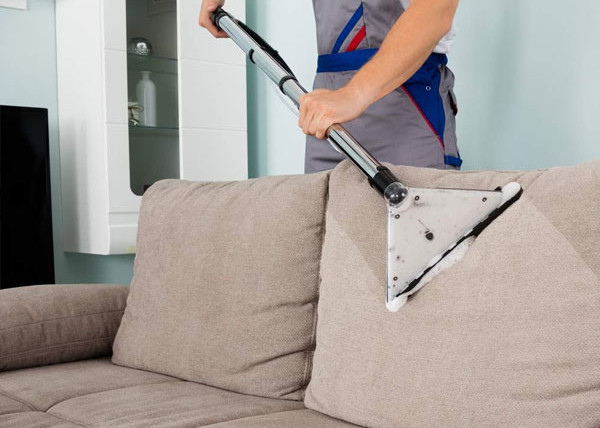Floors are undoubtedly one of those things that first come to your notice when you sit in a room, but keeping them clean is also unavoidable if the floors have to be inviting and shiny. However, floors happen to become extremely appealing to many types of stains. From spilled drinks and food to mud and pet accidents, it is hard to keep floors stain-free. Every type of flooring, marble, tile or wood, has different cleaning requirements and misuse sometimes makes the satins even worse or could even damage the surface. Knowing the right methods for removing common stains not only saves time but also preserves the floor’s natural beauty and integrity.
For instance, marble surfaces require much care. Marble is a very porous material so it stains easily; one small spill can remain permanently if not done correctly. Although some stains can be minimized through DIY methods, sometimes the best solution is to call in the professionals in the marble polishing company to successfully clean your floors without damaging them. In this guide, we will cover effective tips for removing common floor stains and explain how marble polishing services can help keep your floors looking as good as new.
Why Floor Care is Essential?
Floors give quite a strong first impression in the place, depending on how clean and maintained they look. In case of proper care, floors remain beautiful and tough for years. Without proper care, floors can begin to look worn out and stained, lowering the total aesthetic perhaps even well the value of a property. There are specific needs with different flooring materials, especially materials such as marble, where professional marble polishing services could prove beneficial.
Common Types of Floor Stains and How to Remove Them
Let’s look at some of the most common stains, their unique challenges, and effective tips for quick removal on various types of floors:
1. Wine Stains on Marble and Tile Floors
Wine stains are one of the most dreadful stains to remove since it is characterized by dark pigmentation and also acidic in nature. Here’s how to tackle wine stains effectively:
- For Marble Floors: Wipe up the wine spill immediately to prevent it from seeping into the stone. Marble is porous and absorbs liquids quickly. It would be helpful to blot the stains using a soft cloth with some water but should not be scrubbed to avoid damaging the stone. Dilute few drops of dish soap with warm water and continue gently blotting to lift off the stain. Acidic cleaners ought not to be used as they corrode marble surfaces easily.
- For Tile Floors: The spill should be cleaned up with warm water and a light detergent. If the stain doesn’t go away, you can use a paste made of baking soda and water to leave it on for ten to fifteen minutes. After that, you can rinse it off with clean water.
For marble floors that started to develop stubborn stain or have lost shine over the years, a marble polishing company can help out with an efficient solution by professionally restoring the marble’s natural sheen and luster.
2. Coffee and Tea Stains on Ceramic and Hardwood Floors
Coffee and tea can leave dark residue when not addressed soon.
- For Ceramic Floors: Wipe out the spill immediately. Use the vinegar and water solution for the stain left out. Leave it to soak in for some minutes. Then, scrape with a soft-bristle brush and rinse off with water.
- For Hardwood Floors: Coffee and tea are likely to penetrate wood if not treated immediately. Blot the spill right away; clean up with a mild wood cleaner and soft cloth. Excessive water use on a hardwood floor is not recommended as t may cause the wood to swell or warp.
3. Grease and Oil Stains on Stone and Concrete Floors
Grease and oil stains go rampant in kitchens and garages. They are very tough to remove off a porous surface such as stone and concrete.
- For Stone Floors: Try dabbing off as much oil as possible from the stain. Sprinkle baking soda paste on the stain, leave overnight, and rinse off using warm water. Avoid using harsh chemicals that might damage the stone.
- For Concrete Floors: Apply degreasing detergent with warm water to scrub the stain. Rinse with clean water and repeat if necessary.
In the case of stone floors, a professional marble polishing firm can make a difference in areas where grease or oil stains have been embedded over time. Specialized equipment and products can lift stains as the stone is rejuvenated.
4. Ink and Marker Stains on Vinyl and Laminate Floors
These would be even more challenging because they usually have very highly pigmented dyes. This tends to make the colors stick hard to the surface.
- For Vinyl Floors: Soak a cloth in rubbing alcohol and dab away at the ink stain. Be careful not to scrub as this would spread the stain. Remove the rubbing alcohol by dampening with clean cloth afterward.
- For Laminate Floors: Soak a brush in dish soap and water solution and place it on the stain. Let it sit for a few minutes before wiping clean.
5. Mud and Dirt Stains on Carpets and Marble Floors
Mud and dirt are some of the common stains, especially during rainy seasons.
- For Carpets: Completely dry the mud and then place it in a vacuum to get rid of loose dirt. Mix up some dish soap and water, apply to the stain, and blot until clean using a dry cloth.
- For Marble Floors: Wipe off the dirt and use a soft cloth with warm water and a mild dish soap to clean any remaining residue. Avoid using acidic or abrasive cleaners, as these can damage marble surfaces.
Marble floors tend to lose their shine after several cleanings, especially if there is lots of foot traffic; this can be when a professional marble polishing company can be of service and polish your floors to return them to their shine, giving them a fresh new look once more.
6. Pet Urine and Odor on Marble and Tile Floors
Pet urine is not only unpleasant in order but also acidic, making it harmful to sensitive floorings.
- For Marble Floors: Wipe the urine as soon as possible with a paper towel. Few drops of mild dish soap in warm water should be added to the cloth and then moistened for rubbing the area affected by the urine. If the odor remains, a solution of water with a small amount of hydrogen peroxide can be used with care.
- For Tile Floors: Water and soap can be used to remove the urine stain, then rinse and dry. A vinegar solution can help neutralize any lingering odors.
Professional marble maintenance involving polishing services keep the marble floors resistant to acid damage and beautiful with regular maintenance.
When to Call a Professional Marble Polishing Company
Regular cleaning is a must, but professional services are often the way to go for high-quality floors, especially marble. A quality marble polishing company will use special techniques that clean, polish, and restore the look of marble surfaces by eliminating issues caused by stains, etches, and dullness. Here’s why experts are a great call:
- Deep Cleaning Expertise: Experts know how and what equipment to use to clean and polish the marble without causing damage.
- Protective Treatments: Many marble polishing companies apply sealers and topical finishes that give a protective coating to prevent stains from becoming permanent, thus making it easy to clean in the future cleanings.
- Long-Lasting Results: The cleaning methods employed by DIY might serve for a short period, but professional polishing gives results that maintain beauty and luster much longer, thus adding years with beauty to marble floors.
- Time and Effort Savings: Marble floor polishing is said to be a labour-intensive and time-consuming process. In order to prevent any damage to the floor, the homeowner saves a great deal of time and effort by hiring a marble polishing firm instead of doing it themselves.
Tips for Preventing Stains on Marble Floors
Prevention is always better than cure especially for marble flooring. For more helpful tips on how not to let stains become a problem, here are some additional tips on marble floor stain prevention:
Tip #1: Use Mats and Rugs
Place mats outside all entranaces to minimize dirt and moisture coming in.
Tip #2: Quick Cleanup
Clean up any spills immediately to prevent them from seeping into the marble.
Tip #3: Avoid Abrasive Cleaners
Clean your floors only with mild and pH neutral cleaners intended for marble.
Tip #4: Regular Polishing
Schedule regular maintenance with a marble polishing company to maintain floors’ stain resistance and glossy surface.
Conclusion
A floor is an integral component of any space, thus cleaning it up and removing stains would be a matter of high importance both in terms of aesthetic problems and durability. Stains should be treated according to the type of staining and for areas like marble, seeking professional help is always advisable. Working in collaboration with the most reliable marble polishing company will ensure that your marble floors are never to receive a chance to get stained and stay long-lasting against the daily wear and tear. With the help of the above tips and professional marble polishing services, you can be assured of floors that really do appear great with minimal effort. You can keep your floors looking their best with minimal effort, ensuring a beautiful and inviting space for years to come.


